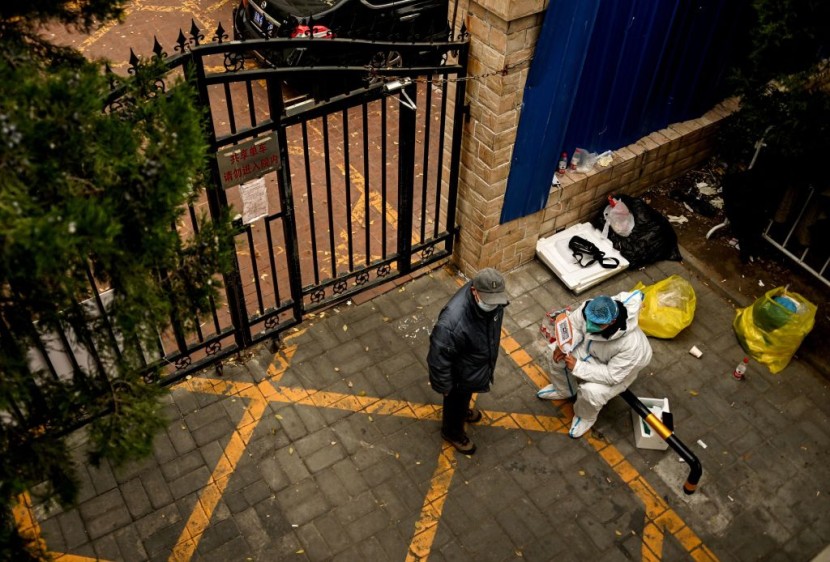
Beijing imposed the closure of parks, malls, and museums on Tuesday as more Chinese cities started conducting COVID-19 mass testing and tighter restrictions amid a rise in infections that raised concerns about its impact on the country's economic recovery.
Nearing its daily peak from April, China reported 28,127 new local cases on Monday, with approximately half of the infections occurring in the southern city of Guangzhou and the southwestern municipality of Chongqing, according to a Reuters report.
In contrast to the three deaths over the weekend-the first in China since May-there were two more deaths that health officials have linked to COVID-19. As the number of reported cases rises daily in the nation's capital, Beijing, officials are urging citizens to coordinate.
Baiyun district, home to one of China's busiest airports, was placed under a lockdown for five days in the megacity of Guangzhou, which has nearly 19 million inhabitants and is one of China's largest cities. Around 3.7 million of Guangzhou's residents call Baiyun home.
Baiyun district government posted on WeChat Monday that schools will be closed, mass transit will be suspended, and dwellers should stay home.
Tens of Thousands of COVID-19 Cases Reported
According to Al Jazeera, Guangzhou is experiencing its worst COVID-19 transmission in three years, prompting the city to go into lockdown. Since October 22nd, when over 80,000 cases were reported in Guangzhou, 8,181 more were reported on Sunday.
Soaring COVID-19 infections have forced local authorities to tighten lockdowns from Guangzhou to Zhengzhou. On Sunday, 26,824 new cases were reported across China.
The latest wave is putting to the test the changes China has made to its "zero-COVID" policy, which calls for authorities to be more targeted in their clampdown measures and away from the widespread lockdowns and testing that have stifled the economy and frustrated residents.
China has maintained its "Zero COVID" strategy of locking down affected areas, conducting widespread testing, and enforcing strict border controls, although the rest of the world has adapted to life with COVID-19.
Businesses Brace Themselves on Possible Economic Impact
Beijing has constantly dismissed an absolute modification from "zero COVID" despite increasing public despair with the policy.
On Monday, investors braced themselves for additional economic disruption due to the rising cases, sending Asian stock markets and oil prices tumbling.
The People's Daily, the official publication of the Chinese Communist Party, published a series of articles emphasizing the importance of early detection while preventing a "one-size-fits-all" approach in addressing the latest COVID-19 surge in the country.
COVID-19 restrictions were loosened up a bit by the central government on November 11th. The measure raised hopes that China was abandoning its strict zero-tolerance policy that significantly disrupted its economic performance.
Hong Kong's Hang Seng Index jumped 14% in three trading days after the move and entered a technical bull market last Tuesday, CNN reported.
The market sentiment took a hit on Monday due to the new lockdowns.
According to Stephen Innes, managing partner of SPI Asset Management, investors fear that China won't ease COVID-19 lockdown policies in light of the resurgence of infectious diseases are the keen driver of the immediate downside momentum.
Goldman Sachs analysts say investors are confused by China's recent measures to curb its latest COVID-19 outbreak.








